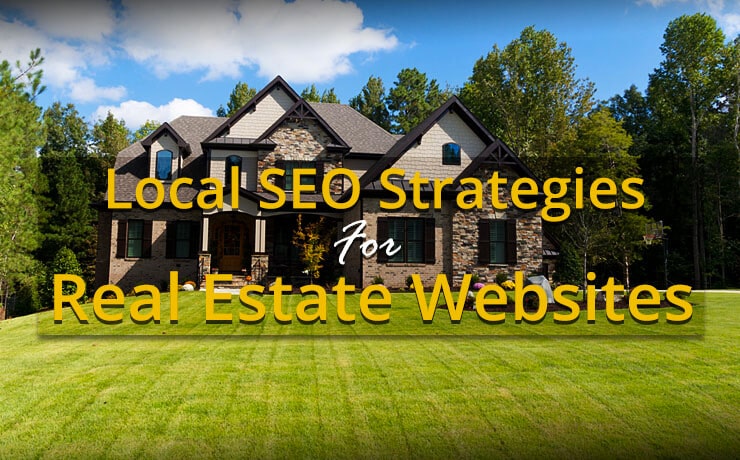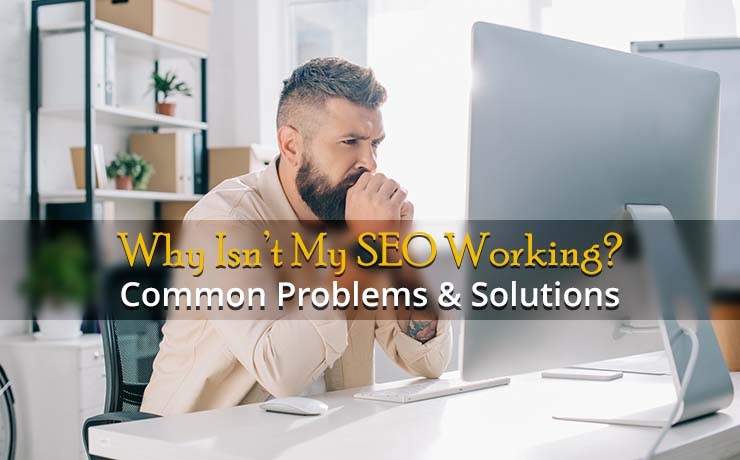Local SEO Strategies For Real Estate Websites

Chad Faith
Director of Content

Even with a love-hate relationship existing when it comes to SEO, every real estate professional wants the benefits of having the web deliver qualified leads to their door. Due to the ever-changing landscape of online consumer behavior, one needs to keep a consistent pace while running the SEO marathon. If you are seeking effective SEO strategies that are applicable to real estate websites, look no further, my friend. Here’s what you need to know about local SEO strategies for real estate websites:
Target Your Site for Mobile Discovery
Face it. We are a culture in love with our smart devices. If you look around, it’s not hard to spot a smartphone, phablet, or a tablet. The growth of mobile devices is astounding and is not showing any signs of slowing down. Since most consumers are doing their online searching on their mobile devices, you will want to capitalize on that. You can start by making sure that your website is conducive to being viewed on any mobile device. If your site is not mobile responsive, you might be turning customers away.
Perform Optimization for Your Real Estate Website
One of the first few steps of onsite local real estate SEO is to make sure that your business name, address, and phone number are used throughout your website. If you have submitted your NAP to local listings and citations before, make sure the information on both your site and the latter are the same. Next, you will want to use your town, city, and state names in your title tags, any content that you have created for your site, and meta descriptions.
If possible, you can consider building your site on a platform that utilizes Schema local markup. This allows the web crawlers of major search engines like Google, Yahoo, and Bing to know what they are looking at. The next two things you absolutely must have are an XML sitemap and indexable listings.
Create High Quality and Relevant Content on a Regular Basis
You might feel intimidated by the need to create beautiful, inspiring content for your site. However, let’s take things down a notch so that you can catch a breather. You just have to create content that has the ability to engage, inform, and educate your audience through the entire customer life cycle. As long as you are providing value added experiences to your customers, you are doing fine. With that, it is a good idea to look at what some of your competitors are doing in the space. To become the best, you have to learn from the best!
Always Use Good Headlines for Your Real Estate Online Marketing Content
What could happen if you featured uninspired copy? Well, you get no clicks, zero attention, and maybe even make your readers cringe. Now let’s say you have spent countless creating awesome content and only added your title as an afterthought. Unfortunately, you may be killing your conversion rates because only 20% of visitors tend to read the rest of a post. 80% of them actually read the headline first and then decide whether to continue reading. If they are not impressed from the get-go, you are wasting your effort! Here’s a basic structure of a good headline: a trigger word, adjective, keyword, and promise.
Perform Keyword Research and Stay Unique
Before you know what your real estate website needs, you need to understand consumer intent. And it can be done through thorough keyword research. This often-overlooked aspect of local real estate SEO can determine which potential customers find you via search. That’s why you can get potentially free traffic if you learn how to do effective keyword research.
Next, you need to remember to include your location in your keywords to make sure you reach customers who are specifically interested in the market you serve. To see what people are searching for, you can check out the Google search bar for long-tail keywords, check common search queries in Google Adwords, or use Google Analytics to check organic terms you rank for.
Lastly, do not forget that you need to be unique. You should stand out from your competitors by telling an engaging story of how you can create value for the audience you are serving, highlighting your unique knowledge of the real estate market, and more. If you do not resonate with the audience you are connecting with and appear just like someone else, you will not gain the attention your business needs and want!
 Free
Consultation
Free
Consultation Free
Google Ads Audit
Free
Google Ads Audit







